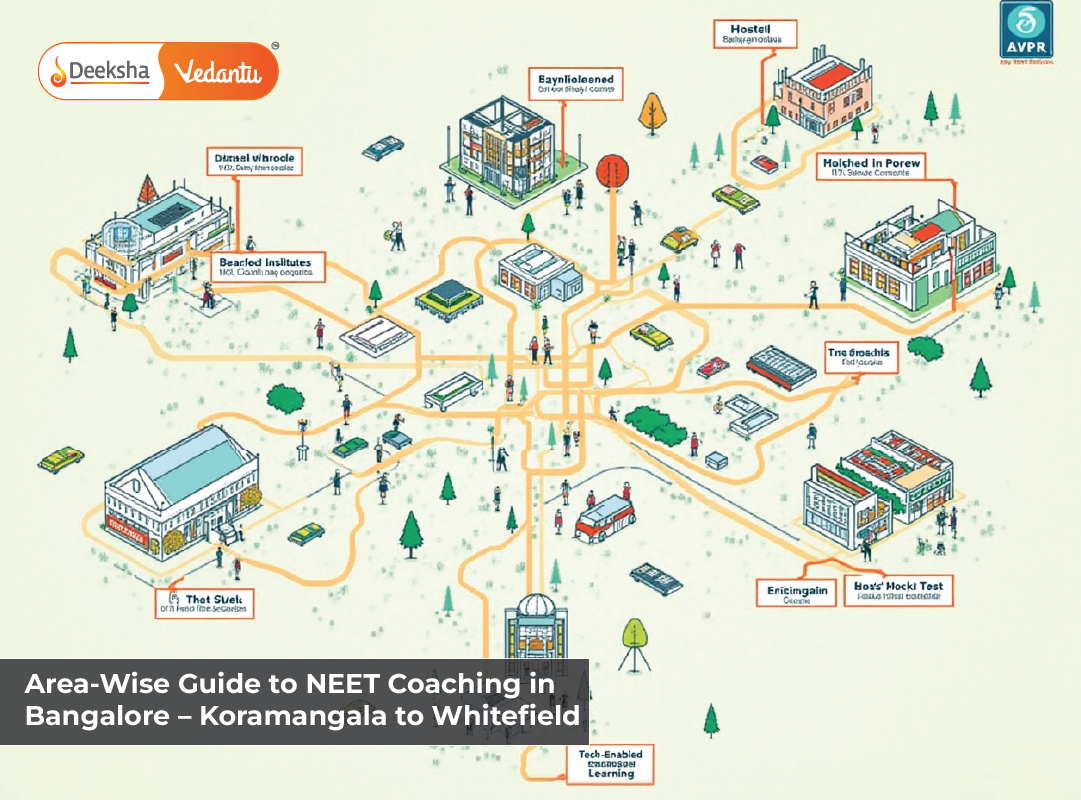The National Eligibility cum Entrance Test or NEET-UG is one of the most prestigious entrance exams in the country. It determines admission to MBBS/BDS Courses in India in Medical/Dental Colleges run with the approval of the Medical Council of India/Dental Council of India. Each year, lakhs of students appear for this highly competitive exam. With coaching centers around the country, preparation for the exam starts right after class 10th or even before that. However, if a student is thorough with the board syllabus, cracking NEET in a months’ time is actually possible. Here, we have listed down certain important tips to crack NEET in 30 days.
Explore Deeksha Vedantu Long Term NEET Coaching to boost your NEET Scores today.
Understanding the syllabus
The syllabus for NEET has portions from both class XI and class XII. Although it is pretty vast, if you have aced your class XI and XII, a quick revision will do the trick. Make sure that you spend a little extra time on important topics.
Physics
| SI No. | Class XI | Class XII |
| 1 | Physical-world and measurement | Electrostatics |
| 2 | Kinematics | Current Electricity |
| 3 | Laws of Motion | Magnetic Effects of Current and Magnetism |
| 4 | Work, Energy, and Power | Electromagnetic Induction and Alternating Currents |
| 5 | The motion of System of Particles and Rigid Body | Electromagnetic Waves |
| 6 | Gravitation | Optics |
| 7 | Properties of Bulk Matter | Dual Nature of Matter and Radiation |
| 8 | Thermodynamics | Atoms and Nuclei |
| 9 | Behavior of Perfect Gas and Kinetic Theory | Electronic Devices |
| 10 | Oscillations and Waves |
Chemistry
| SI No. | Class XI | Class XII |
| 1 | Some Basic Concepts of Chemistry | Solid State |
| 2 | Structure of Atom | Solutions |
| 3 | Classification of Elements and Periodicity in Properties | Electrochemistry |
| 4 | Chemical Bonding and Molecular Structure | Chemical Kinetics |
| 5 | States of Matter: Gases and Liquids | Surface Chemistry |
| 6 | Thermodynamics | General Principles and Processes of Isolation of Elements |
| 7 | Equilibrium | p- Block Elements |
| 8 | Redox Reactions | d and f Block Elements |
| 9 | Hydrogen | Coordination Compounds |
| 10 | s-Block Element (Alkali and Alkaline earth metals) | Haloalkanes and Haloarenes |
| 11 | Some p-Block Elements | Alcohols, Phenols and Ethers |
| 12 | Organic Chemistry- Some Basic Principles and Techniques | Aldehydes, Ketones and Carboxylic Acids |
| 13 | Hydrocarbons | Organic Compounds Containing Nitrogen |
| 14 | Environmental Chemistry | Biomolecules |
| 15 | Polymers | |
| 16 | Chemistry in Everyday Life |
Biology
| SI No. | Class XI | Class XII |
| 1 | Diversity in Living World Reproduction | Reproduction |
| 2 | Structural Organisation in Animals and Plants Genetics and Evolution | Genetics and Evolution |
| 3 | Cell Structure and Function Biology and Human Welfare | Biology and Human Welfare |
| 4 | Plant Physiology Biotechnology and Its Applications | Biotechnology and Its Applications |
| 5 | Human physiology Ecology and environment | Ecology and environment |
The right study materials
The NCERT textbook is the primary study material. In-depth knowledge of the textbook is a must. For practicing MCQ questions, there are a lot of materials available in the market. Get some advice from your teachers or friends on choosing the best one.
Make an effective plan
When you are ready with all the study materials, create an effective plan for 30 days. Manage your time so that you can cover as many topics as possible. Allot time for each activity and take frequent breaks, so that you don’t stress yourself.
Make maximum use of technology
There are hundreds of mobile apps and online tutorials available that can make you understand a topic clearly. It will also help you save a lot of time. Join discussion forums and don’t hesitate to ask doubts.
Work on your speed and accuracy
Improve your speed and accuracy by solving as many questions as possible. Familiarizing yourself with a different type of questions will help you a great deal during the exam
Check out our NEET Residential Coaching option for focused preparation.
- Solve previous years’ question papers and sample papers
Solving previous papers and taking up mock tests will help you learn better and evaluate yourself. Since a lot of questions are repeated, going through the previous year’s papers is a must. - Don’t waste time on new concepts
- It is probably not a good idea to learn new topics during these final days. Instead, spend more time on topics that you have learned. Mastering topics you are aware of is a much better idea.
- Beware of negative marking
- Whenever you are confused between two options, even when you are tempted to do guesswork, it is better to leave the question unanswered. Unnecessary negative marks will impact your result heavily.
Most of all, students need to remain calm and relaxed. They have to understand that cracking NEET in 30 days is actually possible. Start your preparations right away. Join a crash course programme if you need proper guidance.
Table of Contents















Get Social